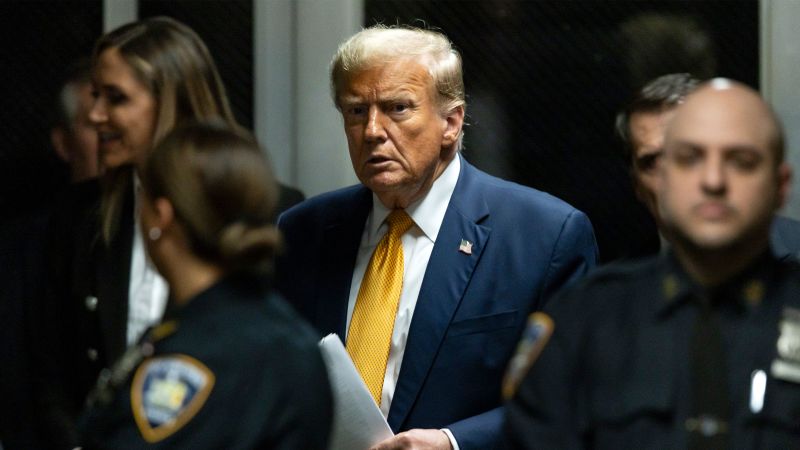A panel of New York State appellate judges denied Donald Trump’s appeal to move his criminal trial out of Manhattan to another county. The decision came after Trump’s lawyers filed the appeal on the last day of jury selection, and the routine procedure for a full review of the appeal took several weeks to complete. The panel denied the appeal with no further explanation in a short ruling, closing the loop on Trump motions that aimed at delaying the trial. Trump had also unsuccessfully appealed with a request for a stay over the change of venue motion, arguing there was a record of bias in the prospective jury pool.
Both the prosecution and Trump’s defense have rested in the Manhattan criminal trial, and the jury is set to hear closing arguments following the Memorial Day weekend break. Trump’s lawyers had challenged Judge Juan Merchan’s pretrial rulings on recusal, motion filing procedures, and presidential immunity. The appellate court denied Trump’s request to delay the trial pending a ruling on these issues five days before the trial began. The panel found that Trump’s legal arguments failed to establish that Merchan overstepped in the pretrial rulings to warrant action from the appellate court at this stage.
During an emergency hearing held on the day the jury panel was finalized, a single appellate judge had denied Trump’s request to stop the trial pending a decision on the venue appeal. Trump’s attorney argued that seating a jury in three days after dismissing many prospective jurors for bias was “untenable.” However, a lawyer for the Manhattan District Attorney’s office argued that the robust jury selection process had worked. The denials by the appeals court on Trump’s motions closed the loop on all of his emergency appellate requests to delay the trial and any motions on underlying issues.
The appellate court also denied another outstanding petition from Trump’s lawyers challenging Judge Juan Merchan’s pretrial rulings on recusal, motion filing procedures, and presidential immunity. Five days before the trial began, Trump’s lawyers had asked the appeals court to delay the trial pending a ruling on these issues. The request was denied after an emergency hearing, and the panel found that Trump’s legal arguments did not warrant intervention from the appellate court at this stage. The ruling allows Trump to ask the appeals court to consider the issues in a direct appeal after a final judgment in the trial.
The denial of Trump’s motions to move the trial and challenge Judge Merchan’s rulings follows a series of appellate actions aimed at delaying the proceedings. Trump’s legal team had made requests related to venue change, trial delay, and pretrial rulings, all of which were ultimately denied by the appellate court. As the trial heads into its seventh week, the jury is scheduled to hear closing arguments next Tuesday. Trump can raise the issues related to his appeals in a direct appeal after the trial concludes, according to the ruling from the appellate judges. The decision by the appellate court to deny Trump’s motions clears the way for the trial to proceed as scheduled in Manhattan.


